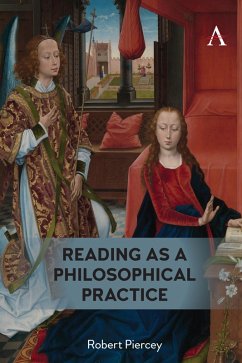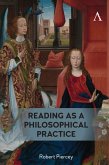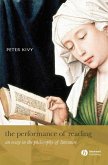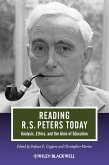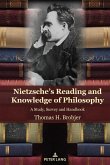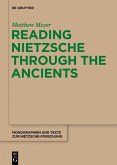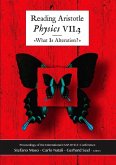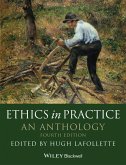Reading as a Philosophical Practice asks why reading-everyday reading for pleasure-matters so profoundly to so many people. Its answer is that reading is an implicitly philosophical activity. To passionate readers, it is a way of working through, and taking a stand on, certain fundamental questions about who and what we are, how we should live, and how we relate to other things. The book examines the lessons that the activity of reading seems to teach about selfhood, morality, and ontology, and it tries to clarify the sometimes paradoxical claims that serious readers have made about it. To do so, it proposes an original theoretical framework based on Virginia Woolf's notion of the common reader and Alasdair MacIntyre's conception of practice. It also asks whether reading can continue to play this role as paper is replaced by electronic screens.
Despite the obvious overlap between the concerns of avid readers and the perennial questions of philosophy, most professional philosophers pay little attention to the kinds of reading that are most familiar to most people. They have had almost nothing to say about the activity of reading for pleasure, considered in itself and as such, or about the ways it matters to ordinary readers. For many serious readers, reading offers a way of working through philosophical matters-a way of posing, and sometimes taking a stand on, certain fundamental questions about what we are, how we should live, and how we relate to other things. This questioning is usually not as explicit or as self-aware as the debates that go on in philosophy journals and seminar rooms. But it has much the same goal and addresses many of the same concerns. Moreover, Reading as a Philosophical Practice argues that it is the "experience" of reading that performs these functions. Reading is not just philosophical on those occasions when we happen to read the works of philosophers or philosophically minded novelists. There is something philosophical about the activity of reading, in itself and as such, and about the experiences people have while engaged in it. The book's goal is to clarify what this is.
Despite the obvious overlap between the concerns of avid readers and the perennial questions of philosophy, most professional philosophers pay little attention to the kinds of reading that are most familiar to most people. They have had almost nothing to say about the activity of reading for pleasure, considered in itself and as such, or about the ways it matters to ordinary readers. For many serious readers, reading offers a way of working through philosophical matters-a way of posing, and sometimes taking a stand on, certain fundamental questions about what we are, how we should live, and how we relate to other things. This questioning is usually not as explicit or as self-aware as the debates that go on in philosophy journals and seminar rooms. But it has much the same goal and addresses many of the same concerns. Moreover, Reading as a Philosophical Practice argues that it is the "experience" of reading that performs these functions. Reading is not just philosophical on those occasions when we happen to read the works of philosophers or philosophically minded novelists. There is something philosophical about the activity of reading, in itself and as such, and about the experiences people have while engaged in it. The book's goal is to clarify what this is.
Dieser Download kann aus rechtlichen Gründen nur mit Rechnungsadresse in A, D ausgeliefert werden.

